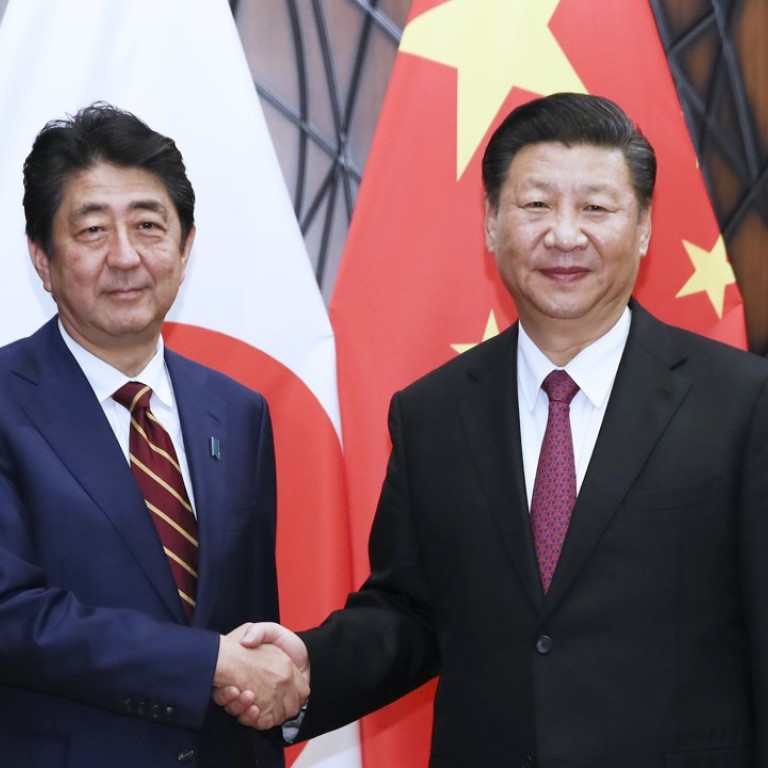
Sincerity the key to policy of Shinzo Abe on China
Japanese prime minister cannot talk about improving ties on one hand and changing the country’s pacifist constitution on the other
Japan’s Prime Minister Shinzo Abe has for months been expressing a desire for improved relations with China. He voiced those wishes again when opening parliament on Monday, seeking reciprocal visits and talks with President Xi Jinping “as soon as possible”.
This year being the 40th anniversary of the nations signing a peace and friendship treaty, ending a freeze in ties would be an admirable goal. Beijing has also expressed such a wish, but it cannot happen if there is a mismatch in the Japanese leader’s words and actions.
Abe made his first public appeal for Xi to visit Japan last September and the offer has since been repeated several times fuelling hopes of improved Sino-Japanese ties this year. There have also been pledges to join the “Belt and Road Initiative”, China’s international trade strategy, and perhaps even the China-backed Asian Infrastructure Investment Bank. But Beijing has rightly been cautious, for reasons highlighted by the speech to parliament.
While Abe spoke of rapprochement, he also reiterated a commitment to changing the country’s pacifist constitution and vowed to push ahead with a strategic alliance with the United States, India and Australia, which is perceived as being a counterbalance to China’s growing influence and military strength.
Plans for constitutional change centre on Article 9, which ensures Japan’s military forces are for defensive purposes only. But Abe and other nationalists want that amended in order to have a fighting force that can operate overseas. The prime minister told lawmakers “the time has finally come to realise the goal”. He is wrong, though; the idea is insensitive to the atrocities committed against Chinese, Koreans and other Asians by Japanese soldiers in the first half of the last century and does not have the support of most Japanese.
Abe cannot be blind to the fact his actions are the reason why relations with China are cold. Economic ties plunged in 2012 when Tokyo nationalised the disputed Diaoyu Islands, known by Japan as the Senkakus, sparking anti-Japanese sentiment across China that still persists. The leader and lawmakers have further raised suspicion and anger with hefty annual defence budget increases, visits to the Yasukuni Shrine at which war criminals are remembered and support of history books that whitewash Japan’s war record. It is all at odds with Abe’s vow to meet the expectations of the international community and develop friendly relations with China.
The belt and road plan and economic cooperation would benefit China and Japan and help lead to positive relations in other areas. But if ties are to genuinely improve, Abe has to show sincerity through what he does.

